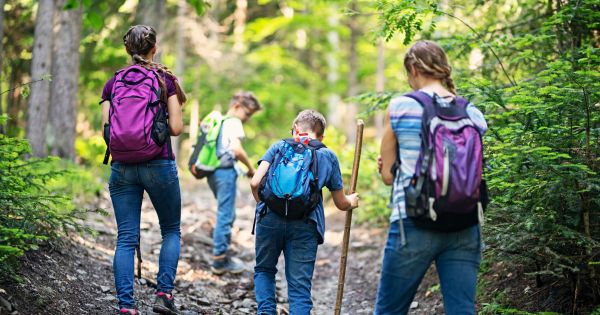In a world constantly bombarded with information and the demands of modern life, it’s increasingly important to find respite and nurture our mental health. The great outdoors is one avenue that promises a breadth of benefits for our well-being. Expert Victoria Gerrard La Crosse WI says her colleagues in the industry have lauded the natural environment—a healthy habitat in its own right—for its healing properties. Let’s explore how outdoor activities impact our mental health and why making them part of our routine is essential.

The Healing Power Of Nature
Humans have an intrinsic connection to nature, a bond deeply rooted in our evolution. Biophilia is the term for our innate affinity toward the natural world. When we immerse ourselves in nature, something profound happens. Our minds quieten, our stress levels drop, and we gain a sense of peace that can be elusive in urban environments.
The concept of “green therapy” or ecotherapy suggests that spending time in green spaces has profound mental health benefits. Forest bathing, a practice from Japan known as Shinrin-yoku, involves simply being in the presence of trees and is renowned for reducing stress hormone production, improving feelings of happiness, and even boosting the immune system.
Outdoor Activities And Mental Health
Engaging in outdoor activities takes the passive act of being in nature one step further. Whether hiking, cycling, gardening, or even bird-watching, these activities encourage mindfulness and present-centeredness, two states of mind that are often recommended for improving mental health.
Exercise-Induced Euphoria
Physical activity is one of the most effective ways to improve mental health. Victoria Gerrard La Crosse explains that movement releases endorphins, chemicals in the brain that act as natural painkillers and mood elevators. Such is the effectiveness of exercise in treating mild to moderate depression that is prescribed as a treatment in some countries.
Stress Reduction
Stress can profoundly negatively impact physical and mental health. Outdoor activities can mitigate these effects by reducing stress hormones like cortisol and adrenaline. Research shows that people with easy access to parks and recreational activities report less mental distress and higher life satisfaction.
Enhanced Creativity
There is evidence that interacting with nature can restore our cognitive resources. Engaging in outdoor activities gives our brains a break from stimuli that demand our constant attention, such as phones and computers. This mental rest can lead to a resurgence in creativity and problem-solving skills.

Connection and Community
Outdoor activities often bring people together. Group hikes, community gardening, or team sports provide the benefits of physical activity and foster social connections, which are pivotal for mental health. Social interaction helps us to build relationships, provides emotional support, and contributes to a sense of belonging.
Improved Sleep
Good sleep is crucial for mental health. Natural light exposure helps regulate circadian rhythms and the body’s wake and sleep cycles. Engaging in outdoor activities can help ensure you get plenty of daylight, improving sleep patterns and, by extension, mental health.
Creating Your Healthy Habitat
To reap the full mental health rewards of the outdoors, Victoria Gerrard La Crosse WI emphasizes that it’s important to integrate these activities into your lifestyle. Here are a few tips to create healthy habits:
- Prioritise Time Outdoors: Make a conscious decision to spend time in nature. Schedule it like any other important activity.
- Variety Is Key: Engage in various outdoor activities. Try new sports or explore different trails to maintain interest.
- Make It Social: Involve friends and family in outdoor excursions or join a local club or group centred around outdoor activities.
- Bring Nature To You: If you don’t have immediate access to natural settings, create a green space at home with plants or a small garden.
- Be Present: When you’re outdoors, take the time to notice the environment around you. Listen to the birds, smell the earth, watch the wind in the trees.
- Start Slowly: If you’re not accustomed to being active, start with short periods outdoors and then slowly increase the time as you feel comfortable.
Incorporating Tech With Caution
While we increasingly rely on technology daily, it’s essential to use it wisely to nurture our healthy habitats. Victoria Gerrard La Crosse points out that fitness trackers and apps can be motivational tools that help us quantify our progress. Still, they shouldn’t distract anyone from the immersive experience of being in nature.
Challenges And Access
It’s important to acknowledge that not everyone has the same level of access to natural spaces or the ability to engage in outdoor activities. Urbanisation and socio-economic factors play significant roles in limiting access. Recognising this issue is an important step, as is advocating for more equitable distribution of natural spaces and outdoor activity accessibility for all communities.
Conclusion
The merits of outdoor activities for our mental health are clear and compelling. They allow us to exercise, connect with others, and, most importantly, erode the stress build-up that modern life tends to deposit. By consciously cultivating habits that bring us outdoors, we enhance our mental well-being and develop a greater appreciation for the planet that sustains us.
The natural world is a healthy habitat for all life, including our own. It beckons with a promise of tranquillity, a playground for physical activity, and a source of community and connection. Now more than ever, it’s essential to heed this call to benefit our minds, bodies, and spirits. Whether you’re a seasoned naturist or a burgeoning outdoor enthusiast, there’s no better time to step outside and breathe on the path to better mental health.
 Kaboutjie SA Mommy Blogs by Lynne Huysamen
Kaboutjie SA Mommy Blogs by Lynne Huysamen




